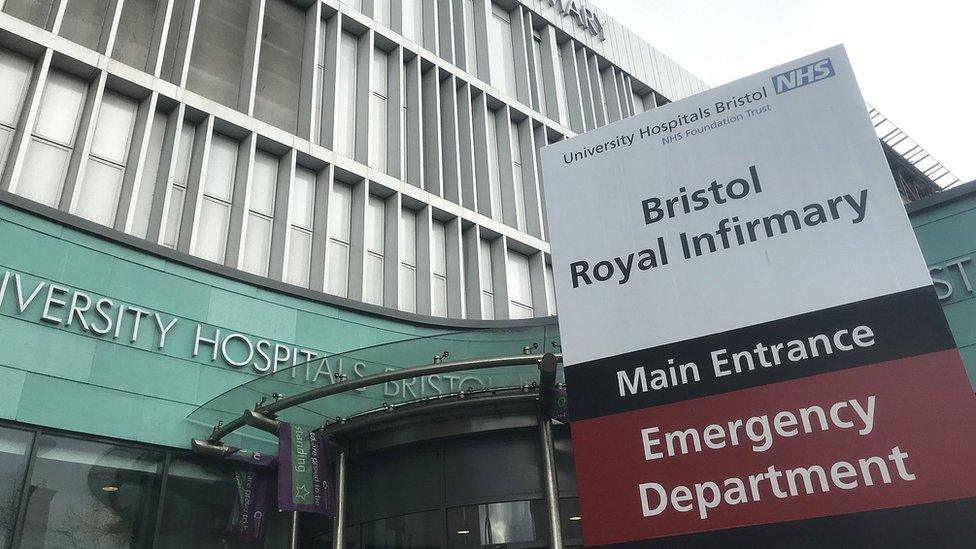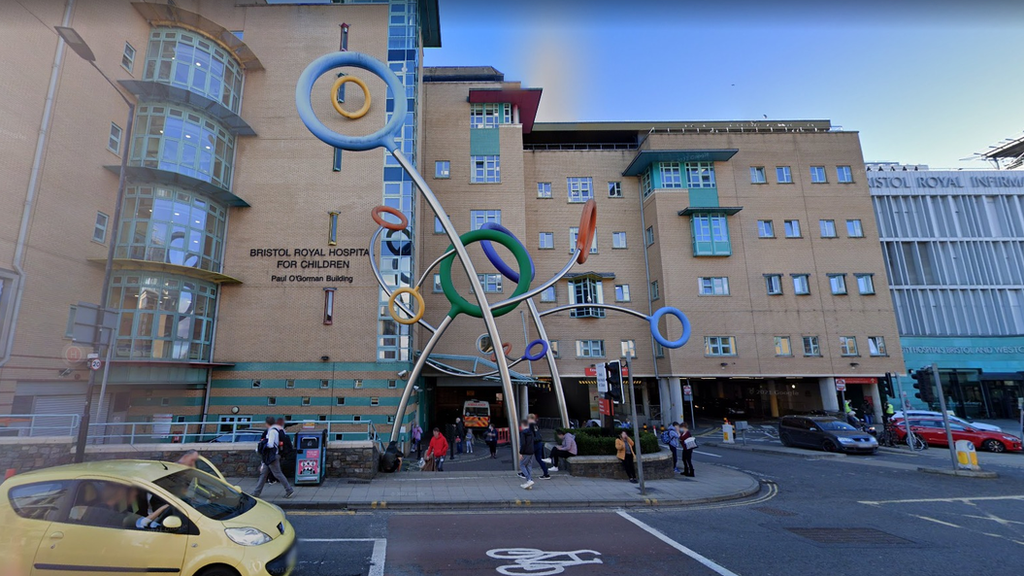More staff needed at Bristol Children's Hospital, review finds
- Published

UHBW has approved plans to recruit more staff
Bristol children's' hospital's emergency department needs to boost staff numbers, according to a review.
The hospital's Seahorse intensive care unit also needs more nurses, as does Weston General Hospital A&E, the hospitals' trust's board was told.
Staffing levels were assessed using a nationally approved method known as the Safer nursing care tool (SNCT).
The trust said employee levels at the three departments were safe and it uses agency staff to fill gaps.
The results of an assessment into University Hospitals Bristol & Weston NHS Trust (UHBW) were published in a biannual report called "Safe Staffing for nursing, midwifery and allied health professionals", the Local Democracy Reporting Service said.
It found there were "significant" staffing gaps at Bristol Royal Hospital For Children's emergency department, adding there had been a "consistent level of low staffing incidents" reported there.
The department currently has 43 nurses and about 11 healthcare support workers, plus supervisory staff.
The report called for an extra 18 registered nurses, 11 nurse associates and 11 healthcare support workers, with recruitment phased over three years.
At the intensive care unit, the report said eight more nurses and four practice education facilitators - trained nurses that support education in the workplace - were needed to ensure full staffing for the 18 beds.
'Safe cover'
It said Weston's emergency department needed an additional 10 nurses and 10 healthcare support workers to join the 53 staff currently there.
The report said the increase were needed "to provide safe cover across the whole 24-hour period as patients are cared for in emergency departments overnight".
UHBW chief nurse and midwife Professor Deirdre Fowler told a meeting of the trust's board on 15 June it would cost about £2.5million to employ the extra staff.
The board approved her request to begin the funding and recruitment process.
Speaking after the meeting, Prof Fowler said: "We continue to see our nursing vacancy rate go down, largely due to international colleagues who have joined UHBW and brought with them a wealth of experience.
"We are also seeing a continued reduction in our nursing turnover rate, largely due to the extensive work we are undertaking on staff wellbeing."
But she added that the trust could not rely solely on international recruitment and was also focusing on training and upskilling existing staff.
"The trust scrutinises staffing levels on a continuous basis and undertakes formal reviews of nursing, midwifery and allied health professionals requirements annually to ensure we maintain a sustainable professional workforce," Prof Fowler said.

Follow BBC West on Facebook, external, Twitter, external and Instagram, external. Send your story ideas to: bristol@bbc.co.uk , external
Related topics
- Published23 June 2023

- Published21 April 2023

- Published4 November 2022
